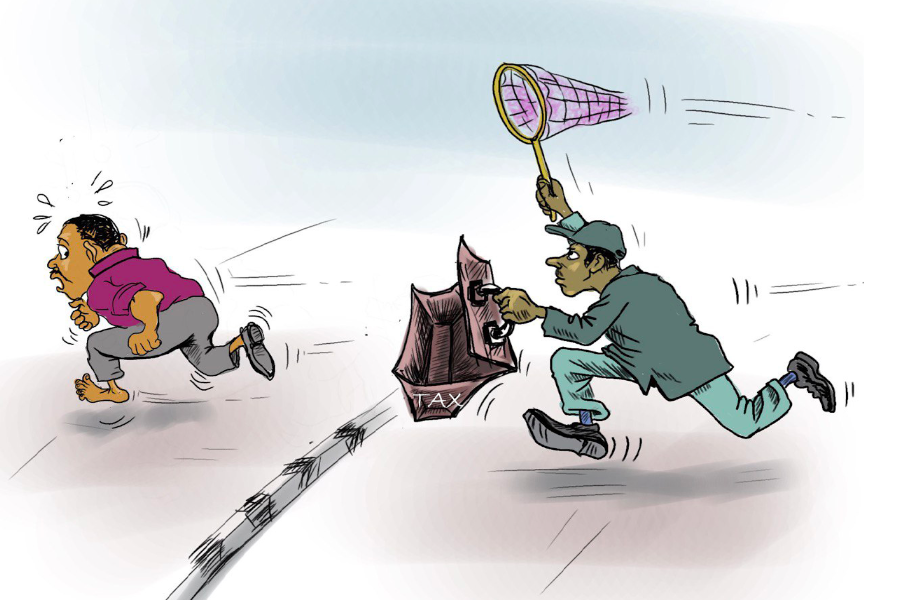
In-Picture | Jul 21,2024
Sep 27 , 2020
By Christian Tesfaye
An underestimated political resource is goodwill. No amount of lyrically written laws, strictly defined checks and balances or vertical separation of powers can substitute it. It needs to exist between each side of the political aisle as a matter of principle for democracy to function.
Exemplifying this is the current state of politics in many parts of the world, including the United States. In the latter’s case, the matter was brought into sharp focus with the death of Supreme Court Justice Ruth Bader Ginsburg, who passed away earlier this month.
Under the circumstances set forth by the US Constitution, filling her seat should not be a complicated issue. After all, the Supreme Court is supposed to be a body above politics. But politics is everywhere – and Supreme Court nominations are highly contested.
The issue was further complicated by the Republican-controlled Senate’s action back in 2016. The Senate, a legislative body with the power to confirm Supreme Court nominees with a simple majority, would not allow then-President Barack Obama to fill a bench vacancy.
Because it was an election year, according to the Republican Party, which insisted that an outgoing president should not be allowed to fill a seat. This set a precedent. By this reasoning, President Donald Trump should also not be allowed to push a nomination through the Senate, since he may lose the election slated to be held in early November this year.
But the politics of our time is a great deal more cynical than this. For the Republicans, the passing of Ginsburg, a highly regarded liberal justice, is an opportunity to expand the number of conservative judges sitting on the Supreme Court. It would be a significant political victory since the justices serve for life, and the highest court in the land will be leaning conservative for years, if not decades.
Moral compunction, here as in everywhere, is a political disadvantage, and the Republicans will have none of it.
“Americans re-elected our majority in 2016 and expanded it in 2018, because we pledged to work with President Trump and support his agenda, particularly his outstanding appointments to the federal judiciary,” said Senate leader Mitch McConnell, rationalising the party’s decision to go forward with Trump’s nomination.
McConnell’s reasoning is logically unsound. The Democrats, the opposition, do not believe it. The Republicans know that everyone knows that they are not sincere in their rationale.
What McConnell wanted to say is that they have no reason to extend goodwill to their contenders. This is war - a battle for the soul of the nation. It is not contention for power with what is good for the country at heart.
Laws, institutions and elections are in place to chasten the personal interests and political agendas of individuals and groups. It is to ensure that, whatever the circumstances, citizens will be protected from the excesses of the state and powerful entities.
But such checks could not possibly cover every single facet of political and economic engagement. Laws and institutions are at best vehicles. They still require someone at the wheel, willing to drive responsibly and determined not to run over someone even when they see it fit to advancing their political agendas.
Ethiopia’s story is one where almost every contender refuses to extend goodwill to their political opponents. What we have is a political culture where state power is used primarily for the advancement of political goals. It is an instrument for accumulating influence, economic rent and instrumentalising a political agenda at the expense of every possible opponent.
What we have is only a little bit removed from the might-makes-right politics of old when almost every group attempted to rob their contenders of the right to fair play and exercise agency. No sort of constitution will address this. The only solution is infusing the political culture with a sense of goodwill.
PUBLISHED ON
Sep 27,2020 [ VOL
21 , NO
1065]


In-Picture | Jul 21,2024

Fortune News | Jun 15,2024

View From Arada | Jan 09,2021

Fortune News | May 23,2021

Fortune News | May 23,2021

Life Matters | Feb 18,2023

Featured | Dec 15,2024

Editorial | Nov 23,2024

Photo Gallery | 175605 Views | May 06,2019

Photo Gallery | 165822 Views | Apr 26,2019

Photo Gallery | 156192 Views | Oct 06,2021

My Opinion | 136833 Views | Aug 14,2021

Dec 22 , 2024 . By TIZITA SHEWAFERAW
Charged with transforming colossal state-owned enterprises into modern and competitiv...

Aug 18 , 2024 . By AKSAH ITALO
Although predictable Yonas Zerihun's job in the ride-hailing service is not immune to...

Jul 28 , 2024 . By TIZITA SHEWAFERAW
Unhabitual, perhaps too many, Samuel Gebreyohannes, 38, used to occasionally enjoy a couple of beers at breakfast. However, he recently swit...

Jul 13 , 2024 . By AKSAH ITALO
Investors who rely on tractors, trucks, and field vehicles for commuting, transporting commodities, and f...

Oct 18 , 2025
The political establishment, notably the ruling party and its top brass, has become p...

Oct 11 , 2025
Ladislas Farago, a roving Associated Press (AP) correspondent, arrived in Ethiopia in...

Oct 4 , 2025
Eyob Tekalegn (PhD) had been in the Governor's chair for only weeks when, on Septembe...

Sep 27 , 2025
Four years into an experiment with “shock therapy” in education, the national moo...

Oct 18 , 2025 . By NAHOM AYELE
In a sweeping reform that upends nearly a decade of uniform health insurance contribu...

A bill that could transform the nutritional state sits in a limbo, even as the countr...

Oct 18 , 2025 . By SURAFEL MULUGETA
A long-planned directive to curb carbon emissions from fossil-fuel-powered vehicles h...

Oct 18 , 2025 . By BEZAWIT HULUAGER
Transaction advisors working with companies that hold over a quarter of a billion Bir...